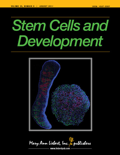
STEM CELLS AND DEVELOPMENT
Scope & Guideline
Charting New Territories in Stem Cell Science
Introduction
Aims and Scopes
- Stem Cell Differentiation and Regeneration:
Research on the mechanisms and pathways that govern the differentiation of various stem cell types, including induced pluripotent stem cells (iPSCs) and mesenchymal stem cells (MSCs), into specialized cell types for tissue regeneration. - Stem Cell Therapy and Clinical Applications:
Investigations into the therapeutic applications of stem cells, including clinical trials and preclinical studies that assess the efficacy and safety of stem cell-based treatments for various diseases. - Cellular and Molecular Mechanisms:
Exploration of the cellular signaling pathways, genetic regulation, and molecular interactions involved in stem cell maintenance, differentiation, and function. - Model Systems and Experimental Approaches:
Utilization of various model systems, including animal models and organoids, to study stem cell behavior and the impact of environmental factors on stem cell function. - Stem Cell Niche and Microenvironment:
Studies focusing on the interactions between stem cells and their microenvironment, including the role of extracellular matrix and signaling molecules in stem cell behavior.
Trending and Emerging
- Extracellular Vesicles in Stem Cell Therapy:
Increasing attention is being given to the role of extracellular vesicles derived from stem cells in mediating therapeutic effects, including their potential for improving tissue repair and regeneration. - Regenerative Medicine and Tissue Engineering:
A growing number of studies are focusing on the application of stem cells in regenerative medicine, particularly in developing engineered tissues and organoids for therapeutic purposes. - Mechanobiology of Stem Cells:
Research exploring how mechanical cues and the physical properties of the microenvironment influence stem cell behavior is gaining traction, reflecting a broader interest in the physical aspects of cell biology. - Stem Cells and Immune Modulation:
Emerging studies are examining the immunomodulatory properties of stem cells, particularly how they can be harnessed to treat autoimmune diseases and improve transplant outcomes. - Age-Related Stem Cell Dysfunction:
There is an increasing focus on understanding how aging affects stem cell function, with implications for developing therapies aimed at rejuvenating aged stem cells for improved regenerative capacity.
Declining or Waning
- Embryonic Stem Cell Research:
There has been a noticeable decrease in publications specifically dedicated to embryonic stem cells, possibly due to the increasing focus on iPSCs and ethical concerns surrounding the use of embryonic cells. - Basic Stem Cell Biology without Clinical Relevance:
Research papers that delve into fundamental aspects of stem cell biology without direct clinical implications have become less frequent, as the journal shifts towards more translational research. - In Vitro Studies without Functional Validation:
The journal appears to be moving away from studies that do not include in vivo validation of in vitro findings, emphasizing the importance of functional outcomes in the context of therapeutic applications.
Similar Journals

Russian Journal of Developmental Biology
Exploring the intricacies of life’s beginnings.The Russian Journal of Developmental Biology, published by PLEIADES PUBLISHING INC, serves as a significant platform for researchers and professionals engaged in the field of developmental biology. With the ISSN 1062-3604 and E-ISSN 1608-3326, this journal focused on intricate biological processes and dynamic developmental mechanisms from 2005 until 2017. Although its coverage is currently discontinued in Scopus, it remains notable for its contribution to understanding the pivotal roles of biochemistry and molecular genetics within the context of development. As a publication situated in the competitive quartiles of the field and boasting an influential Scopus rank of #77 out of #78, it has made a unique mark in developmental studies. Researchers and academics seeking to enhance their knowledge of historical advancements in the discipline will find the journal a valuable resource, even as it navigates the transition away from active publication.

American Journal of Stem Cells
Exploring the frontiers of cellular therapies and regenerative methodologies.American Journal of Stem Cells is a leading multidisciplinary publication dedicated to advancing the field of regenerative medicine and stem cell research. Published by E-CENTURY PUBLISHING CORP, this journal has gained recognition for its commitment to high-quality scientific contributions, achieving impressive rankings within the Scopus database, particularly in the areas of Biochemistry, Genetics and Molecular Biology, and Developmental Biology. With its focus on innovative research, the journal offers crucial insights and developments that appeal to researchers, professionals, and students alike. Although it is not an open-access journal, the American Journal of Stem Cells plays a pivotal role in disseminating impactful findings that define the future of cellular therapies and regenerative methodologies. The journal's past coverage from 2012 to 2017 reflects its dedication to advancing knowledge in key scientific disciplines, making it an essential resource for anyone engaged in the dynamic landscape of stem cell science.
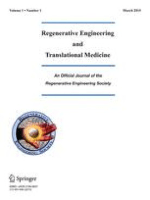
Regenerative Engineering and Translational Medicine
Advancing the Future of Regenerative MedicineRegenerative Engineering and Translational Medicine is an esteemed academic journal published by Springer Heidelberg, focusing on the interdisciplinary fields of biomaterials, biomedical engineering, and cell biology. With an ISSN of 2364-4133 and an E-ISSN of 2364-4141, the journal has carved a niche for itself since its inception in 2015, showcasing cutting-edge research that bridges the gap between scientific findings and practical applications in regenerative medicine. As a recognized platform in its field, it is currently positioned within Q3 quartiles in biomaterials, biomedical engineering, and medicine (miscellaneous), with a Scopus ranking that reflects its growing influence among peers. The journal aims to disseminate high-quality, peer-reviewed articles that highlight advancements in regenerative engineering, further advancing both theoretical and applied research. Scholars and practitioners seeking to stay at the forefront of the ever-evolving landscape of regenerative health solutions will find invaluable insights and innovations within these pages. Join a community of leading thinkers and explore the journal's comprehensive research contributions, which are crucial for fostering partnerships between academia and industry in the quest for transformative medical solutions.

Cell Journal
Empowering Researchers with Open Access to DiscoveryCell Journal is a leading interdisciplinary publication in the fields of Cell Biology, Developmental Biology, Molecular Biology, and Reproductive Medicine, published by ROYAN INST since its inception as an open-access journal in 2007. With an ISSN of 2228-5806 for print and 2228-5814 for electronic editions, it provides a vital platform for researchers and professionals to disseminate innovative findings and insights that shape our understanding of cellular processes and reproductive sciences. The journal boasts an impressive Scopus ranking, achieving a Q3 position in both Molecular Biology and Reproductive Medicine, highlighting its significance in the academic community. Situated in Tehran, Iran, Cell Journal encourages global collaboration through its accessible content, making cutting-edge research available to a diverse audience. As it converges from 2011 to 2024, the journal continues to emphasize the importance of thorough scientific inquiry, fostering advancements that drive both theoretical frameworks and practical applications in cell science.

Current Stem Cell Research & Therapy
Advancing the Frontiers of Stem Cell ScienceCurrent Stem Cell Research & Therapy, published by Bentham Science Publishers Ltd, is a leading journal dedicated to advancing the field of stem cell research. With an ISSN of 1574-888X and an E-ISSN of 2212-3946, this journal has been a valuable resource since its inception in 2006 and continues to broaden its scope through 2024. Recognized in the Q2 quartile for Medicine (miscellaneous) and ranked in the 66th percentile among its peers, the journal plays a crucial role in disseminating high-quality, peer-reviewed research that explores both the therapeutic and biological implications of stem cells. Located in the United Arab Emirates, Current Stem Cell Research & Therapy embraces a global audience of researchers, professionals, and students, providing a vibrant platform for discourse and innovation. While the journal offers subscription-based access, it remains committed to enhancing the scientific community's understanding of stem cell therapy and its applications across various medical fields.
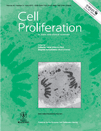
CELL PROLIFERATION
Unlocking the Mysteries of Cell Growth and DivisionCELL PROLIFERATION, published by Wiley, is a leading open-access journal that has been at the forefront of research since its inception in 1968. With an impact factor that solidifies its position in the Q1 category of both Cell Biology and Medicine (Miscellaneous), this journal serves as a premier platform for disseminating groundbreaking studies in the field of cellular and molecular biology. The journal is renowned for its rigorous peer-review process and comprehensive coverage of topics related to cell growth, division, and differentiation, making it an invaluable resource for researchers, professionals, and students alike. With its notable Scopus ranking of #30 in Biochemistry, Genetics, and Molecular Biology: Cell Biology, and a robust open access model since 2019, CELL PROLIFERATION ensures that cutting-edge research is accessible to a global audience, fostering collaboration and innovation across the scientific community. Located in the United Kingdom, the journal remains committed to enhancing the understanding of cellular processes, thereby influencing developments in medicine and biotechnology.

IN VITRO CELLULAR & DEVELOPMENTAL BIOLOGY-ANIMAL
Fostering Scientific Dialogue in Cellular ResearchIN VITRO CELLULAR & DEVELOPMENTAL BIOLOGY-ANIMAL, published by SPRINGER, is a pivotal journal in the fields of cell biology and developmental biology, focusing on in vitro studies that enhance our understanding of animal cellular mechanisms and development. With an ISSN of 1071-2690 and an E-ISSN of 1543-706X, this esteemed journal offers a platform for researchers to present their findings and contribute to the body of knowledge necessary for advancements in biological sciences. As a recognized publication, it holds a 2023 category quartile of Q4 in Cell Biology and Developmental Biology, and Q3 in miscellaneous Medicine, reflecting its competitive position yet inviting critical submissions that can span multidisciplinary approaches. Though currently not open access, it serves as an essential resource for professionals, researchers, and students dedicated to unraveling the complexities of cellular processes in an ever-evolving field. The journal has been continuously published since 1986, signifying its long-standing commitment to fostering scientific discourse and innovation.
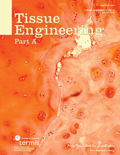
Tissue Engineering Part A
Bridging Research and Clinical ExcellenceTissue Engineering Part A is a prestigious peer-reviewed journal published by MARY ANN LIEBERT, INC that focuses on innovative research and advancements within the field of tissue engineering and regenerative medicine. Since its inception in 2008, this journal has played a critical role in disseminating cutting-edge findings that bridge the gap between laboratory research and clinical application, underscoring its significance in the scientific community. With a diverse scope encompassing biochemistry, bioengineering, biomaterials, and biomedical engineering, the journal ranks notably in the Scopus database, holding a Q2 quartile status across multiple categories, thus reflecting its high impact on ongoing research and professional practice. For researchers, professionals, and students, Tissue Engineering Part A serves as an invaluable resource, offering insights into the latest methodologies and breakthroughs that drive the future of healthcare and therapeutic strategies. While primarily a subscription-based journal, it ensures that vital research is accessible to a broad audience of scientists and engineers committed to advancing the life sciences.
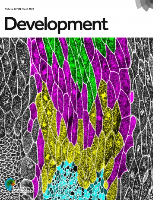
DEVELOPMENT
Illuminating the path of development from molecules to organisms.DEVELOPMENT is a preeminent journal published by COMPANY BIOLOGISTS LTD, headquartered in the United Kingdom. With an ISSN of 0950-1991 and an E-ISSN of 1477-9129, this esteemed journal has been at the forefront of the fields of Developmental Biology and Molecular Biology since its inception in 1987. Recognized for its rigorous peer review process and high-caliber research, DEVELOPMENT holds an impressive Q1 ranking in both disciplines as of 2023, underscoring its pivotal role in advancing scientific understanding. The journal is particularly noted for its contributions to the understanding of developmental processes, their molecular underpinnings, and their implications in health and disease. With a significant impact factor, DEVELOPMENT aims to disseminate groundbreaking research that inspires novel insights and future explorations within the biological sciences, making it an essential resource for researchers, professionals, and students alike. The journal also maintains accessibility for its readership, ensuring that significant research findings reach those who can apply and build upon them.

Stem Cell Reviews and Reports
Bridging Knowledge Gaps in Cell BiologyStem Cell Reviews and Reports is a prestigious journal published by SPRINGER specializing in the dynamic field of stem cell research, encompassing various aspects of cell biology and cancer research. With an ISSN of 2629-3269 and E-ISSN of 2629-3277, this journal serves as an essential resource for academics, offering insightful reviews and cutting-edge reports from 2009 to 2024. The journal has achieved a commendable Q2 ranking in both Cancer Research and Cell Biology categories as of 2023, highlighting its significant contribution to the scientific community. Additionally, with Scopus rankings placing it in the 74th percentile for both biochemistry and cell biology, it is recognized for its high-quality articles that foster innovative approaches in stem cell therapy and regenerative medicine. As an Open Access publication, Stem Cell Reviews and Reports ensures that its comprehensive content is readily available to researchers, professionals, and students, promoting collaboration and advancement in this vital area of study.